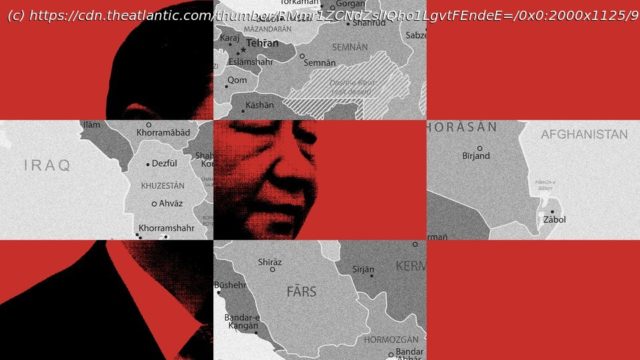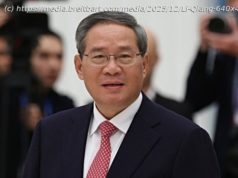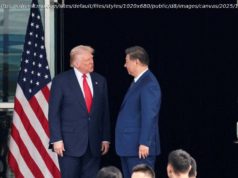Iran and Israel came to blows, and Beijing mostly ducked.
China isn’t ready to be the world’s next superpower: That’s one thing the exchange of fire between Israel and Iran in June made abundantly clear.
The country that was perhaps Tehran’s most important diplomatic and economic partner wound up playing virtually no role when Iran and Israel came to blows. This, despite the fact that Beijing has actively sought stronger relations with many countries in the Middle East—not just Iran, but also Saudi Arabia and the United Arab Emirates—and despite China’s evident stake in promoting stability in a region that supplies more than half of its oil imports.
So why didn’t China step up?
Beijing did make some effort to assert its influence. In mid-June, Chinese leader Xi Jinping proposed a four-point plan, calling for a cease-fire and negotiations to contend with Iran’s nuclear program, and offering to play a “constructive role” in restoring peace. But Xi’s proposal went nowhere. He couldn’t bring the belligerents to the table—especially not Israel.
The two countries have never been particularly close, and Beijing deeply offended the Israeli leadership by taking a pro-Hamas position after the group’s October 7, 2023, terror attack on Israeli civilians. But amid Israel’s recent military successes, Beijing has tried to soften its approach. Chinese Foreign Minister Wang Yi has opened a dialogue with his Israeli counterparts and in a phone call in October stated that China “is ready to resume exchanges in all aspects as soon as possible,” according to an official summary of his comments.
But Israel’s leaders are likely to remain cautious, given China’s relationship with Tehran. In the recent past, Beijing has helped the Iranians circumvent Washington-led sanctions and diplomatic pressure. Alongside Russia and India, China has welcomed Iran into two important forums: the BRICS group of emerging economies and the Shanghai Cooperation Organization, an association of countries connected to Central Asia. And China purchases nearly all of Iran’s oil exports, providing vital resources to its moribund economy.
Given these links, Chinese leaders might be expected to wield influence over Tehran. They’ve done so in the past: In 2015, China encouraged Iran’s leadership to join the Obama administration’s nuclear deal, and in 2023, it brokered a détente between Tehran and its regional rival, Saudi Arabia.






